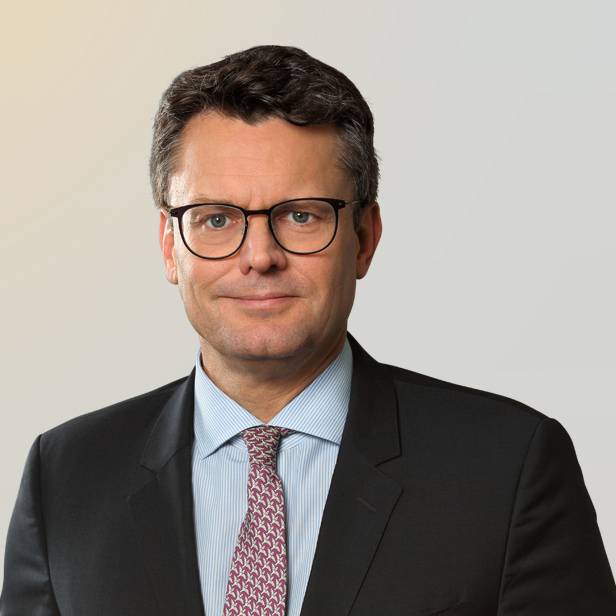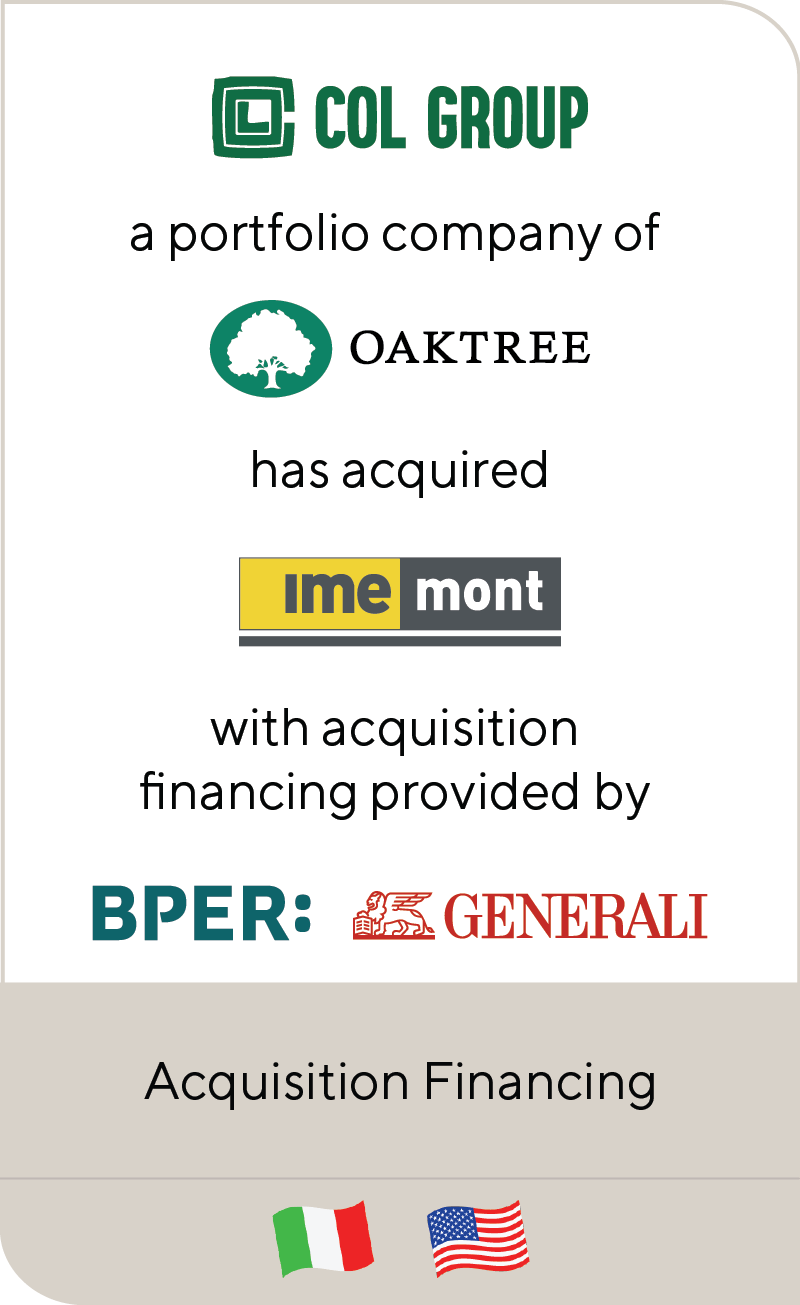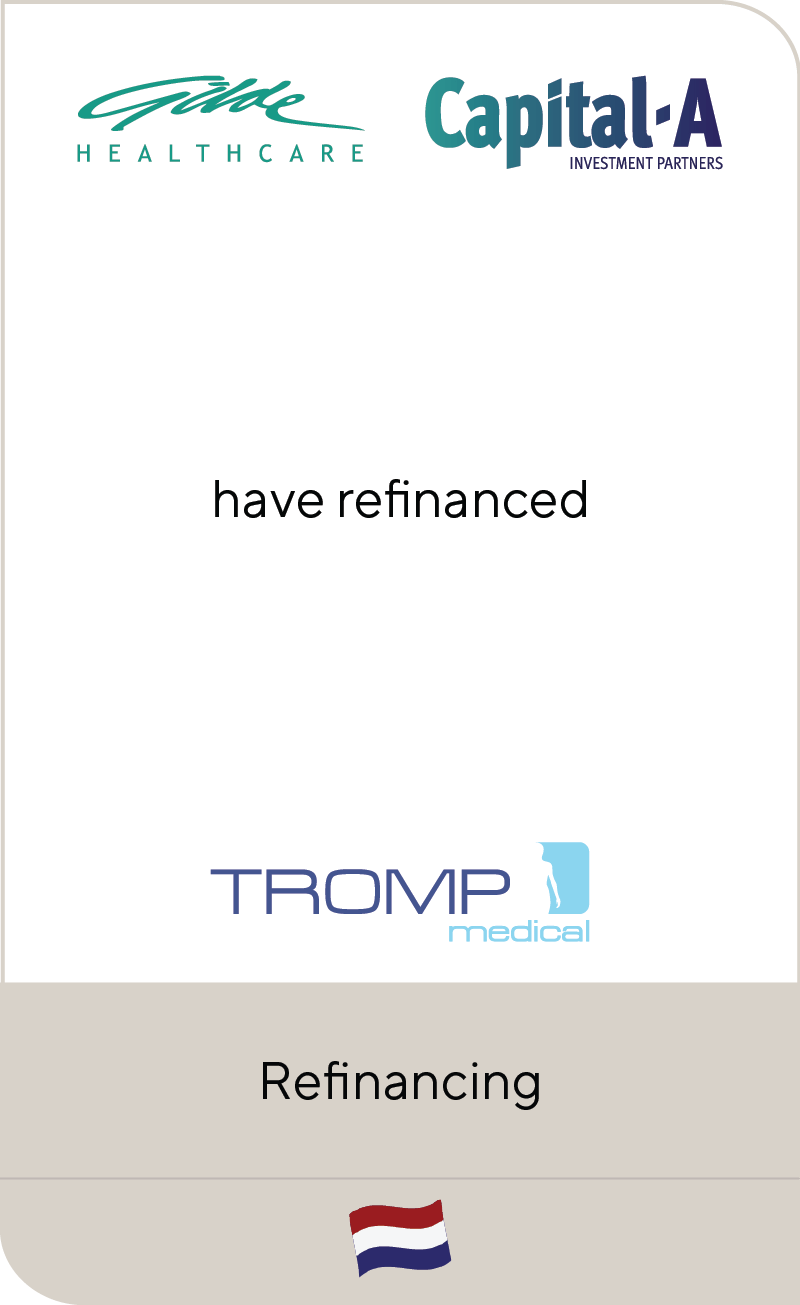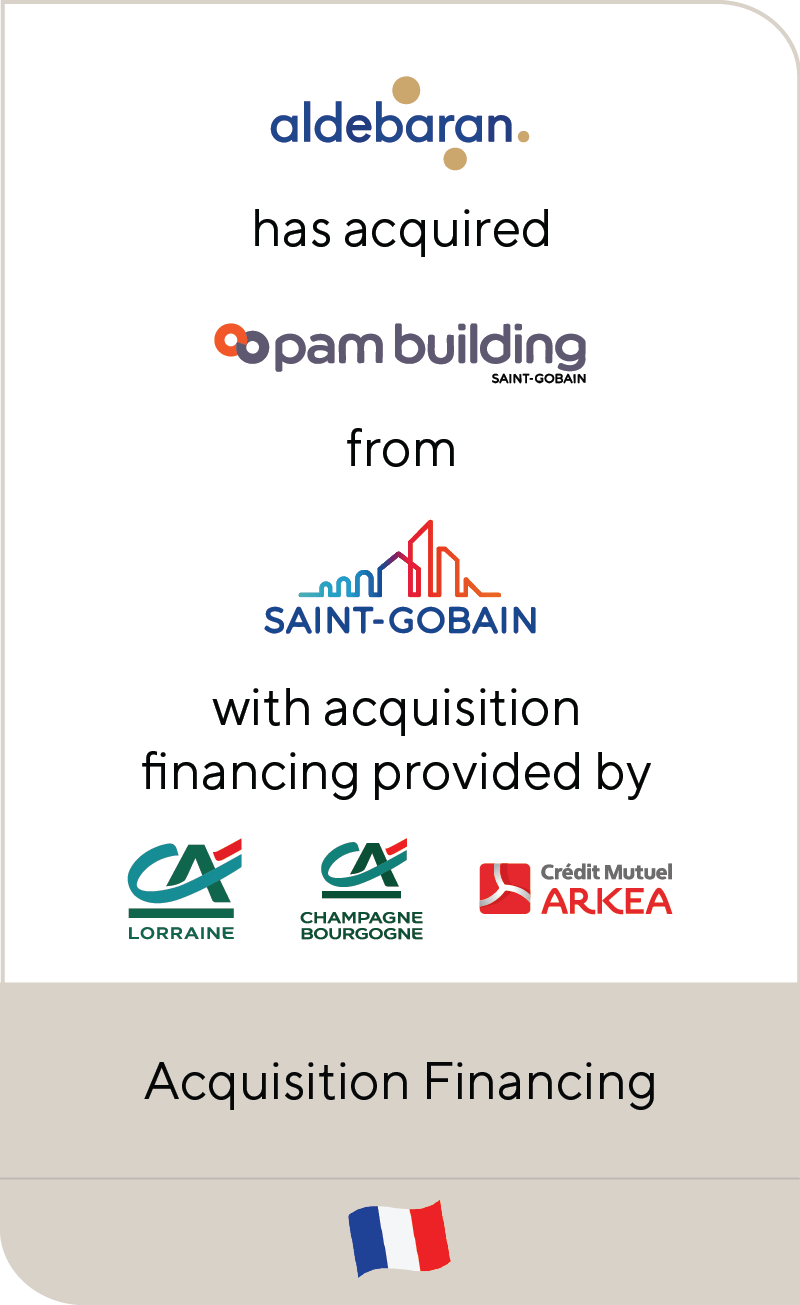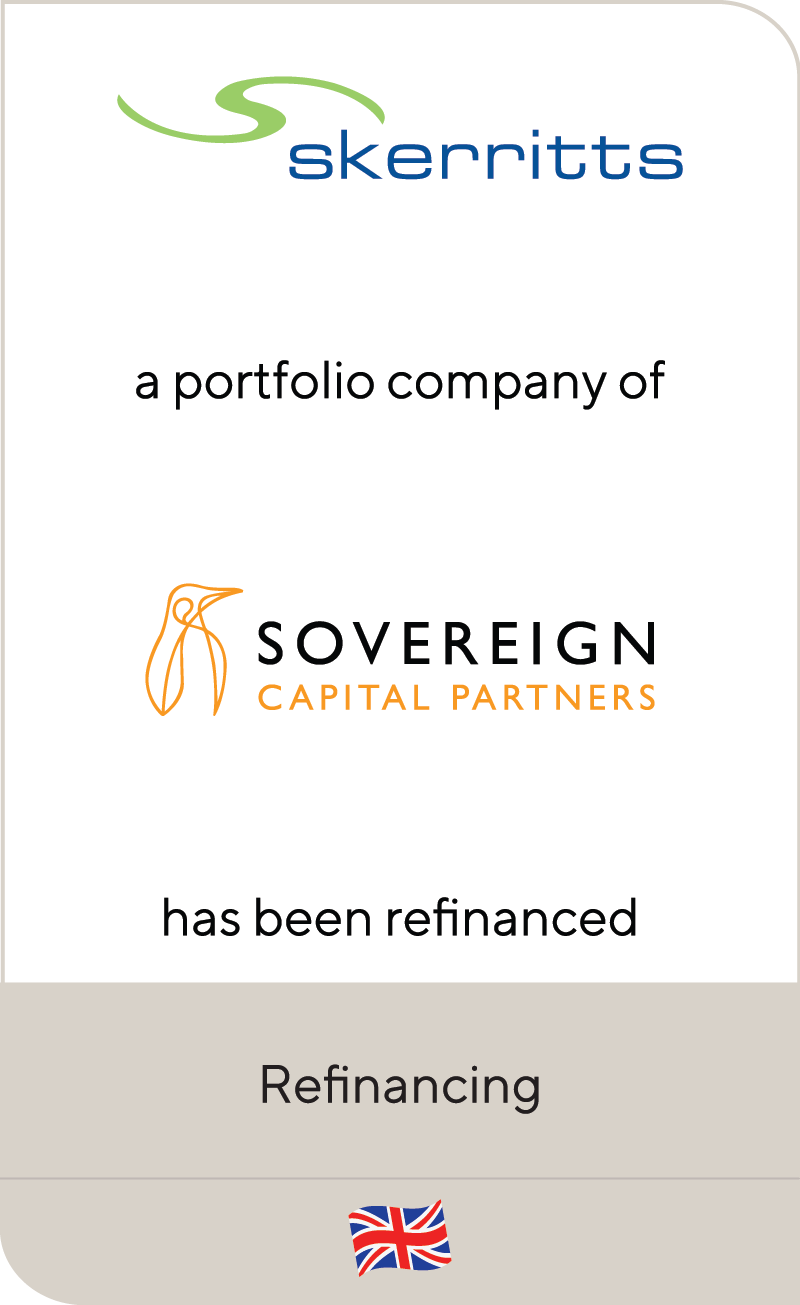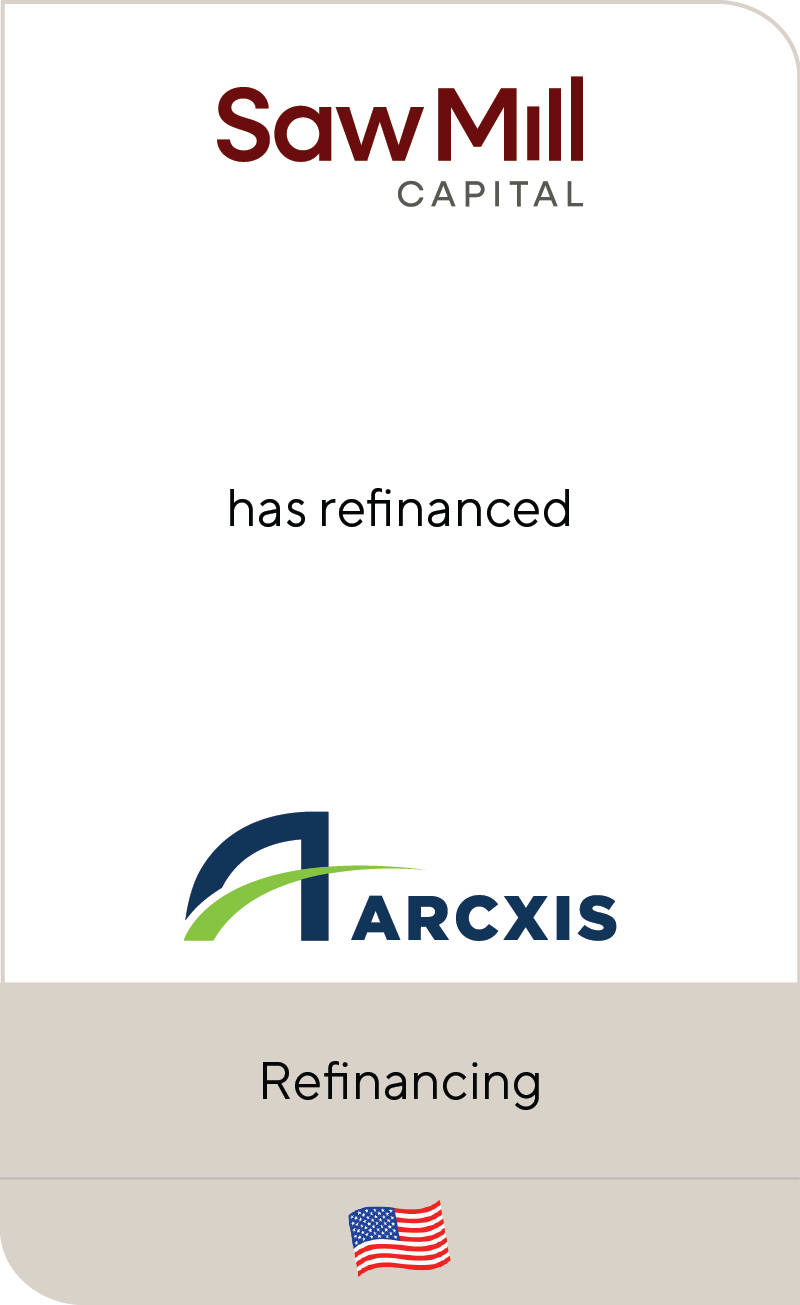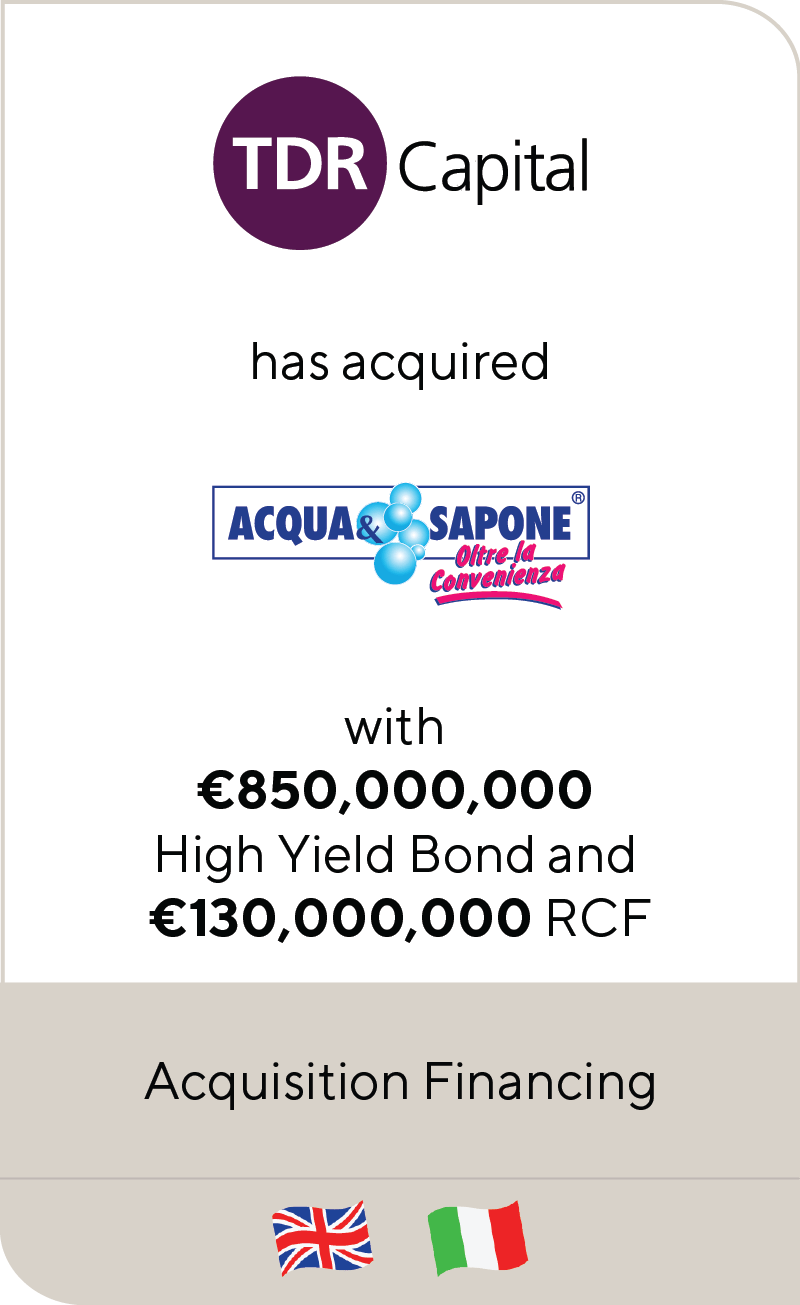THREE GLOBAL THEMES TO CONSIDER IN 2021
Financing in 2020 was defined by a more complex macro environment and continuously evolving landscape of financing providers and structures. Looking ahead, 2021 looks to be an equally dynamic year. To help prepare, Robert Horak, Managing Director in the U.S., and Aude Doyen, Managing Director in the U.K., identified three financing trends to pay attention to in the year ahead.
|
1 |
Strong global M&A market.
In 2021, lending activity and volume supporting new platforms and add-on acquisitions is expected to eclipse 2020 levels in both U.S. and European markets. Industries less impacted by the pandemic, such as technology, healthcare, as well as certain business services and consumer segments, are expected to be particularly active. Industrials and other sectors that were more heavily impacted by the pandemic last year are expected to recover as economies reopen during 2021. |
|
2 |
Complexity stemming from the pandemic.
Because COVID-19 is so widespread, almost every business has been impacted, either positively or negatively. As a result, companies seeking financing in 2021 will need to thoughtfully tell their COVID-19 story. Some will center on a temporary revenue and EBITDA trough, while others will focus on the sustainability of increased performance. All will need to be well-articulated and preferably backed by data. Lenders will carefully analyze and underwrite these trends, leading sponsors and borrowers to spend more time on financing processes, despite what is expected to be an aggressive lending market. |
|
3 |
Increased restructuring activity.
2020 was marked by a lower level of balance sheet restructurings than expected, driven by government liquidity programs and accommodating incumbent lenders. Based on proprietary data from Lincoln’s Valuation Database, the average length of amendments and debt service deferrals was 7 – 10 months. Many of these modifications were done in mid-2020, meaning many will expire in Q1 2021. This will generate increased restructuring activity as lenders and private equity/owners make more permanent capital structure decisions. |
United States
| PERSPECTIVES | U.S. MARKET
The U.S. lending market is largely back to pre-COVID levels with lenders reporting leverage levels trending up and pricing coming down, adds Robert. Financing providers were extremely busy closing deals in Q4 2020 with much of the activity backing new LBOs or add-on acquisitions. Entering 2021, the market has an optimistic tone with lenders generally “open for business.” From a fundraising standpoint, 2020 turned out better than expected, with an increase from 2019. Larger, established debt funds really benefited as they had an easier time raising money than new funds. Additionally, the pre-pandemic shift toward direct lending and away from the syndicated market continued. While fundraising was up, full year volume was down, meaning 2020 added to the problem of too much capital chasing too few deals. While this will likely keep pricing, leverage and terms highly competitive, we could see some moderation in overall market statistics during 2021 as “tier 2” companies in more cyclical industry sectors recover and come to market, joining the “tier 1” pandemic-protected companies that came to market first. PERSPECTIVES | U.S. RESTRUCTURING MARKET The restructuring market has been impacted by lower-than-expected default rates. Alexander Stevenson, Managing Director, says this is driven by capital market intervention by the federal reserve, government stimulus programs (e.g. PPP loans), and unprecedented accommodations from both public and private lenders. As these conditions revert to the mean and lenders begin to take direct action with struggling credits, there may be increased default rates due to the economic disruptions and over-leveraging of businesses that have been impacted by the pandemic and the general increases in corporate leverage during the pre-COVID period. An upward trend in default rates would likely be focused in those sectors hit hardest in the short- term by the pandemic (e.g. travel, events, restaurants, retail, theaters, real estate) and in those industries impacted by longer- term changes in customer behavior or technology (e.g. energy, retail, commercial aerospace, automotive). Unlike the financial crisis of 2008-2009, if this default cycle emerges and no other exogenous events impact the market, liquidity should remain strong in the marketplace providing ample opportunities for viable businesses to restructure with, or be sold to new capital providers, as opposed to the amend and extend transactions that typified the last cycle. |
Spain
| PERSPECTIVES | LENDING DYNAMICS ACROSS EUROPE
Joaquin Mateos, Managing Director, shares that debt funds over the past two years have increased their interest in expanding across Southern Europe, especially Spain, covering the full range of debt, from direct lending to special situations and Chapter 11 bankruptcy. Most debt funds understand that once the banks finish implementing the state-backed credit facilities and start to deploy their own resources, they become very conservative, giving them a remarkable opportunity to gain market share. Debt funds are either opening local offices across Europe or creating dedicated teams to operate in specific jurisdictions. This is very important because banks still have a very powerful and diversified network of offices. Additionally, debt funds are starting to align their investment interests to the reality of the southern European countries where they want to operate. This is especially relevant in the case of Spain, where 70% of the companies are small to medium enterprises (SME) and the banks are extremely competitive in pricing. Debt funds are targeting companies with more contained EBITDAs and are lowering their entry tickets as well as their yield expectations. As an example, in Spain, there are already some local and international debt funds targeting companies with EBITDA of €5M and below, offering senior debt starting at 5% all in. |
France
| PERSPECTIVES | LENDING DYNAMICS ACROSS EUROPE
Serge Palleau, Managing Director, explains that banks arrange senior debt facilities and consider underwriting on a case-by-case basis—especially for companies they know well, or to defend an existing commercial position. Acquisition financing structures in France are based on senior debt facilities complemented with mezzanine financing for leverage around 4.5x to 5x EBITDA. Leverage and pricing came back to pre-COVID levels in deals structured with private debt lenders through unitranche facilities. For example, there was leverage as high as 6.5x EBITDA with pricing at 6.25% on a deal in the private education sector in France with EBITDA at €25M. However, there are still differences on Term Loan A (TLAs) and Term Loan B (TLBs) provided by banks and institutional investors where pricings are on average 40 to 50bps higher than before March 2020 and leverage lower by half a turn of EBITDA. |
United Kingdom
| PERSPECTIVES | LENDING DYNAMICS ACROSS EUROPE
In the U.K., Xenia Sarri, Managing Director, shares that direct lending demand continues to outstrip supply driven by excess liquidity and record levels of fundraising. As a result, terms are back to pre-COVID levels, if not better for some sectors such as technology and healthcare. However, there is potential for further volatility tied to challenges with vaccine rollouts—especially as new, more contagious strains of the virus become prominent in the U.K. and worldwide. Increased demand for refinancing and borrower friendly conditions are encouraging sponsors to opportunistically refinance, recapitalize or even reprice existing loans. Current market conditions also provide opportunities for clients to enhance returns by optimizing the capital structures of their portfolio companies. PERSPECTIVES | LENDING OUTLOOK BY SECTOR ACROSS EUROPE Xenia adds that software, a COVID-resilient sector propelled to unprecedented growth and valuation levels during the pandemic, has attracted the interest of equity and debt investors alike. With the rise in non-bank lenders, high-growth technology businesses with limited or negative cashflows are becoming increasingly financeable on a recurring revenue basis. With the proliferation of specialty technology lenders and venture debt funds, financing options have expanded exponentially for software businesses. Now is an opportune time for software companies to tap the depth of the lending market and seek financing to support their growth plans. PERSPECTIVES | EMERGENCE OF ESG PERFORMANCE AS PRICING CRITERIA IN EUROPE Transactions with explicit sustainability-linked pricing ratchets are emerging in Europe, according to Aude. Investment-grade corporate debt has had an ESG agenda for several years, linking loan terms to ESG goals, but there have been very few examples in leveraged finance until recently. In the second half of 2020, debt funds including Barings, CVC and Tikehau have announced ESG unitranches with margin reductions in return for reaching ESG goals. We expect this trend to continue in 2021, following the LMA and European Leveraged Finance Association issuing guidance that will bring more consistency in reporting on those matters. |
Italy
| PERSPECTIVES | LENDING OUTLOOK BY SECTOR ACROSS EUROPE
Daniele Candiani, Managing Director, finds that lending activity and volume, with reference to acquisition and leverage finance, in 2020 did not suffer as a result of the pandemic. The sectors with the highest lending activity last year were TMT, healthcare and a few COVID-resilient Industrial sectors. We expect that these sectors will be the most interesting ones for the lenders as we move into 2021 as well. For 2021, many lenders expect a stronger mid-market M&A and increased lending activity, especially for COVID-resilient sectors at the level of direct lenders and banks. Additionally, leverage levels and spreads are expected to remain stable compared to 2020. |
DACH
| PERSPECTIVES | LENDING OUTLOOK BY SECTOR ACROSS EUROPE
Dominik Spanier, Managing Director, and Christine Weis, Managing Director, share that in the DACH region (Germany, Austria and Switzerland), sectors with a perceived low cyclicality or COVID-resilience are expected to generate substantial M&A activity leading to respective financings with multiples often exceeding 5.0x EBITDA. A survey of ca. 100 lending institutions, both banks and funds, active in the DACH region in early January found that the sectors with the expected highest lending activity are TMT and healthcare (both with ca. 40%) followed by business services and consumer/retail. Less favorable sectors will generate lower multiples around 3.0x–a trend already closely observed for the past two years. |
Key Takeaways from DACH Lender Survey:
A survey of ca. 100 lending institutions, both banks and funds, active in the DACH region in early January found that:
|
Contributors

By linking my experience in debt advisory and mergers and acquisitions, I look forward to delivering flexible and innovative financing solutions to make an impact that matters with long-term target clients, as Lincoln does best.
Daniele Candiani
Managing Director & Co-head of Capital Advisory, Europe
Milan
I build trust with clients by putting their interests first at all times.
Aude Doyen
Managing Director & Co-head of Capital Advisory, Europe
London
We structure creative financing solutions for complex transactions in order to maximize optionality and value for our clients.
Alexander Stevenson
Managing Director & Co-head of Capital Advisory
Los AngelesLincoln Professionals with Complementary Expertise

By linking my experience in debt advisory and mergers and acquisitions, I look forward to delivering flexible and innovative financing solutions to make an impact that matters with long-term target clients, as Lincoln does best.
Daniele Candiani
Managing Director & Co-head of Capital Advisory, Europe
Milan
I build trust with clients by putting their interests first at all times.
Aude Doyen
Managing Director & Co-head of Capital Advisory, Europe
London
My approach with our bankers and clients is to listen, pay attention to detail, anticipate and keep an eye on the big picture.
James Sinclair
Managing Director | CEO Brazil
São PauloRelated Perspectives
Recent Transactions in Capital Advisory

Lincoln International’s Capital Advisory Group Identifies Global Financing Trends in 2021
Throughout COVID-19, one question has come up time and again: Are lenders open for business? The resounding answer: YES. There has been strong appetite among lenders to provide financing—especially for… Read More

No EBITDA, No Problem: Software Financing and the Rise of the Non-Bank Lender Market
The technology sector has been a bright spot for years. Even during the challenges created by the pandemic, our Lincoln International M&A bankers are seeing record levels of software investments… Read More

Gregory Bortz
Greg provides capital solutions for both private equity and founder-owned businesses. He has experience in arranging various types of financings for clients across a wide range of industries. Greg advises… Read More

Webinar | Investing in Europe: Q&A on Executing and Financing Deals Post-COVID-19 – Part II
Lincoln International hosted a virtual panel on January 28, 2021, featuring the firm’s experts from across Europe for a Q&A on some of the key considerations and opportunities for investors… Read More

A leading specialist provider of care services has raised growth capital
Our client is a leading specialist provider of care services with a focus on children and their families and operations across Northern and Western Europe. Its service offering spans the… Read More
2020 Year-End Results
In 2020, Lincoln completed a record number of transactions, generated record revenues and achieved growth in key strategic areas. This was driven by innovating around the complexities of doing deals during… Read More
Supply-Demand Imbalance Continues as Private Equity Looks to Deploy Capital in 2021
Pulse on Private Equity: Recent survey of more than 150 global private equity investors uncovers key trends heading into 2021. Sources: Mergermarket, Pitchbook

The Nordic Lending Landscape: Trends in Corporate Credit Through COVID-19
The unprecedented market turbulence of 2020 has resulted in challenges in raising middle market debt in the Nordic region, as the syndicated banking loan market shut down and commercial banks… Read More

The Unpredictable Year: U.S. M&A Reflections and Projections
To epidemiologists, a global pandemic was not a matter of “if,” but “when.” But to the rest of the world, the events of 2020 have been full of surprises. Today,… Read More

Webinar | Autumn Valuations and Capital Advisory Insights
Lincoln International hosted a webinar on November 2, 2020, discussing proprietary insights sourced from private companies into Q3 valuations alongside forecasts for the quarter ahead. The global panel explored select… Read More

Webinar | Autumn Valuations and Capital Advisory Insights
Lincoln International hosted a webinar on November 2, 2020, discussing proprietary insights sourced from private companies into Q3 valuations alongside forecasts for the quarter ahead. The global panel explored select… Read More

European Deal Making in 2020: Insights on Selling, Buying and Opportunities for Investors
Businesses across Europe are facing challenges stemming from the COVID-19 pandemic every day. Despite the challenges, there have been several bright spots—presenting opportunities for private equity and corporate investors. Lincoln… Read More

Webinar | Investing in Europe: Q&A on Executing and Financing Deals Post-Pandemic – Part I
Lincoln International hosted a virtual panel on October 22, 2020 to discuss considerations and opportunities for investors and businesses alike in the new deal landscape. Professionals from the firm’s European… Read More

Ambreeka Fox
Ambreeka provides debt advisory services to corporate and private equity clients. She has experience working with clients across a broad spectrum of industries, advising on the structuring and arranging of… Read More

S&P Global Market Intelligence | COVID-Era Private Credit Trends
A rash of covenant violations due to government-mandated shutdowns has forced lenders to reevaluate portfolio companies and rewrite covenants. As a result, new trends have taken shape in private credit… Read More

Webinar | Europe: Our Latest Insights on Valuations and Financings Market Conditions as We Enter Q3 2020
On Wednesday, July 8, 2020, experts in Lincoln International’s Financial Sponsors Group, Valuations & Opinions Group and Capital Advisory Group join forces to discuss insights into the European valuations and… Read More

Webinar | Europe: Our Latest Insights on Valuations and Financings Market Conditions as We Enter Q3 2020
On Wednesday, July 8, 2020, experts in Lincoln International’s Financial Sponsors Group, Valuations & Opinions Group and Capital Advisory Group join forces to discuss insights into the European valuations and… Read More

Webinar | Analyzing Automotive Investment Opportunities in a Volatile Environment
On June 4, 2020, experts in the automotive supply sector from Lincoln International and Conway MacKenzie hosted a panel discussion providing valuable insights regarding the current industry outlook and recovery… Read More

Webinar | UK Nursery Sector: Navigating the Financing Market in the COVID-19 Environment
On May 21, 2020, a panel of Lincoln International’s European capital advisory and healthcare experts discussed the impact of COVID-19 on financing markets in the nursery sector. Topics covered include:… Read More

Webinar | Lincoln International and Latham & Watkins Discuss Capital Infusion Transactions
On May 14, 2020, Chris Gregory, a Managing Director in Lincoln’s Valuations & Opinions Group and head of the Fairness & Solvency Opinion Practice is joined by Alex Stevenson, Managing… Read More

Webinar | Lincoln International and Latham & Watkins Discuss Capital Infusion Transactions
On May 14, 2020, Chris Gregory, a Managing Director in Lincoln’s Valuations & Opinions Group and head of the Fairness & Solvency Opinion Practice is joined by Alex Stevenson, Managing… Read More
U.S. Capital Advisory in the Time of Coronavirus: Presentation
The novel coronavirus and related market volatility has threatened the health of many middle market companies and their lenders, reshaping capital markets on a near daily basis. In the past… Read More

U.S. Capital Advisory Group – Financing Market Update
Private Credit Market Issues Amidst COVID-19 The current COVID-19 crisis is presenting numerous challenges for traditional middle market lenders. Aggressive Revolver Draws During the two weeks… Read More

Trends in the European Debt Markets & Valuation Implications
Lender Sentiment Lenders are honouring existing commitments with negligible retrades; however, debt and equity investors are cautious when reviewing new opportunities. Lenders remain focused on their existing portfolios and are… Read More

Neil Maini
Neil is a member of the Capital Advisory Group focused on raising debt capital for his clients across a range of industries. Neil arranges financings for a variety of transactions,… Read More


